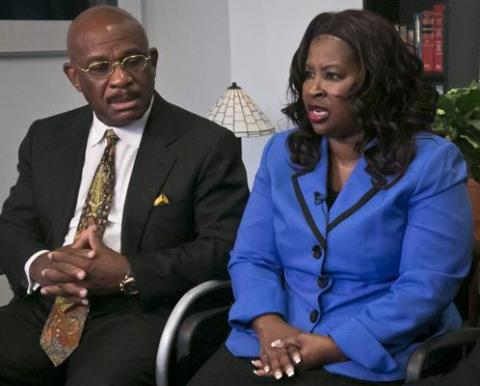Tobacco company to pay Widow of a chain-smoker $23 Billion

NEW YORK (AP) -- A Florida widow awarded $23.6 billion in the death of her chain-smoking husband on Monday called the massive verdict a message to Big Tobacco, even though she likely won't see much if any of the money.
The punitive damages — $23,623,718,906.62, to be precise — almost certainly will be significantly reduced on appeal, if not thrown out entirely, legal experts and industry analysts said. In another major tobacco trial, a $28 billion verdict in a 2002 case in Los Angeles turned into $28 million after appeals.
The figure is a pointed, dramatic gesture, said Cynthia Robinson, whose husband took up smoking at 13 and died of lung cancer at 36.
"It's over. R.J. Reynolds got knocked in the head. They have to own up to it — they have not, they probably won't, but it's justice," Robinson told The Associated Press.
Some legal experts even suggested the jurors in Florida, home to most of the nation's remaining lawsuits against Big Tobacco, may have been savvy enough to know their sky-high sum won't stand, but did it anyway to make a point.
Robinson said her husband spent the 10 months after his diagnosis in pain, sweating and coughing up blood. She said she still remembers "that cancer smell" and the way he died in a pool of blood in their home.
"And they've got the nerve to say, 'Michael chose to do this,'" Robinson said. "They knew exactly what they were doing. Now they have to pay for it."
R. J. Reynolds Tobacco Co. plans to appeal the punitive damages that a Pensacola jury awarded late Friday on top of $16.8 million in compensatory damages.
"Regardless of the rhetoric surrounding this case, the damages awarded are grossly excessive and impermissible under state and constitutional law," said Jeff Raborn, vice president and assistant general counsel for Reynolds, which is owned by Winston-Salem, North Carolina-based Reynolds American Inc.
Robinson's case originally was part of a class-action lawsuit representing between 300,000 and 700,000 Floridians. The trial lasted from 1998 to 2000, when the jury took only five hours to find the tobacco companies liable and awarded $145 billion in punitive damages.
In 2006, the Florida Supreme Court threw out most of that award as excessive and said it should not have been certified as a class action. The court said individual smokers and their families could bring their own cases, in which they would have to prove addiction and that smoking caused their illnesses or deaths but wouldn't have to show that smoking is dangerous and the companies had misled consumers — the court declared those as established facts.
Up to 8,000 cases stemming from the original class-action lawsuit are still pending in Florida. Reynolds has paid $114 million to date for damage awards issued in the individual lawsuits in Florida, and the company has an outstanding liability of roughly $185 million for the pending cases, Wall Street analyst Chris Growe said.
"While each individual case in and of itself is not likely to pose a threat to the industry, in aggregate the liability associated with these cases continues to grow," Growe said.
Though analysts downplayed the risks raised by the verdict, it still suggests cigarette companies aren't adequately managing their liability, said Mark Gottlieb, executive director of the Public Health Advocacy Institute at Northeastern University School of Law.
"These are manageable risks, but there's a human response to their actions that can be replicated in courtroom after courtroom that could have serious implications for their liability going forward," Gottlieb said Monday.
Plaintiffs have been winning damages from juries in two-thirds of the Florida lawsuits, but elsewhere the expense of taking on a tobacco company and having to prove their liability can seem daunting, Gottlieb said.
"Anyone who brings these cases knows the defendant will exhaust every possible appeal and never settle," Gottlieb said. "Were thousands of cases going on simultaneously around the country, it would be unmanageable and have the effect of overwhelming the companies — but we're not seeing that."
Since the mid-1990s, jurors have become increasingly aware of the dangers of smoking and the lengths tobacco companies once took to hide those risks from the public, legal experts said, adding they might expect to see other juries hit tobacco companies with high amounts of damages, regardless of whether those damages would hold up on appeal.
Cigarette makers themselves contributed to the education of Florida residents about the dangers of tobacco products, through a 1997 settlement with the state in which the firms agreed to pay millions to fund anti-smoking campaigns.
Some juries may just want to punish tobacco companies beyond a figure suggested by the plaintiffs, whether or not they understand that the damages may eventually be reduced, said Neil Vidmar, an expert in jury behavior at Duke University School of Law.
"They're being asked to translate something for which there is no true metric: How offended are you? How dangerous was this?" Vidmar said.
___
Kay reported from Miami. Associated Press Writer Michael Felberbaum in Richmond, Virginia, contributed to this report.
Source: Associated Press
